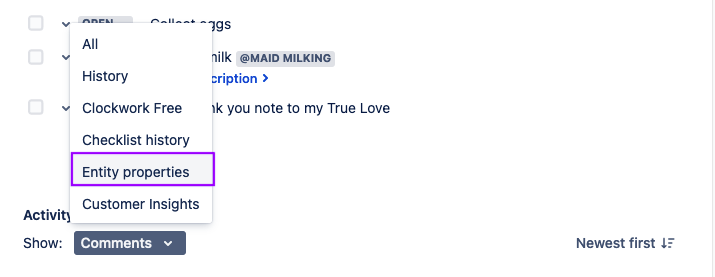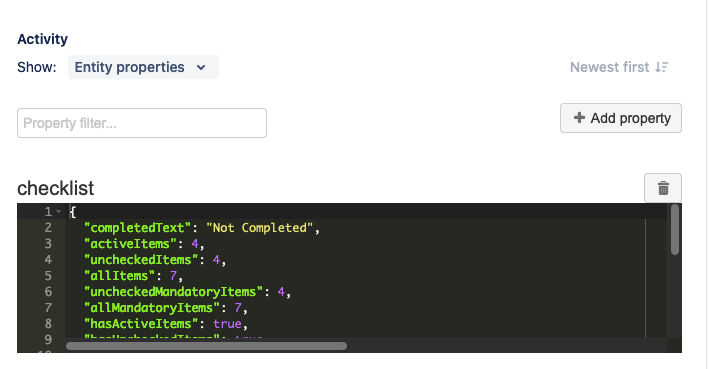Issue Entity Properties
Saving data to entity properties can unveil checklist data to users who can view the issue, but do not have permission to view the checklist.
Entity properties will reflect the collective state of all checklists, Local and Global, on the issue.
Available properties
Issue Checklist sets the issue entity property checklist JSON object with the following fields/properties inside:
CODE
|
Example usage
Entity properties are read-only. Changes made directly to the entity properties will not update the checklist and will be overwritten by changes made in the checklist UI (or in any other valid way such as through the API, Checklist Text field, automation, a post function, etc.).
Entity properties can be used in:
Automation
In Automation rules, issue entity properties can be accessed through the smart values feature, e.g.
CODE
|
Get Entity Properties
You can get an issue’s entity properties in the following ways:
Jira API REST Request
Open terminal (command-line interface) and execute the following curl command, replacing:
your-domainwith your Jira URL{issueKey}with valid Jira issue keyemail@example.comwith your emailapi_tokenwith your API token
curl --request GET \
--url 'https://your-domain.atlassian.net/rest/api/2/issue/{issueKey}?properties=*all' \
--user 'email@example.com:<api_token>' \
--header 'Accept: application/json'
You can also make the request through a third-party tool such as Postman.
Entity Property Tool App
Install the Entity Property Tool app.
Open the issue page.
Select the Entity properties tab to see the details of the entity properties.


